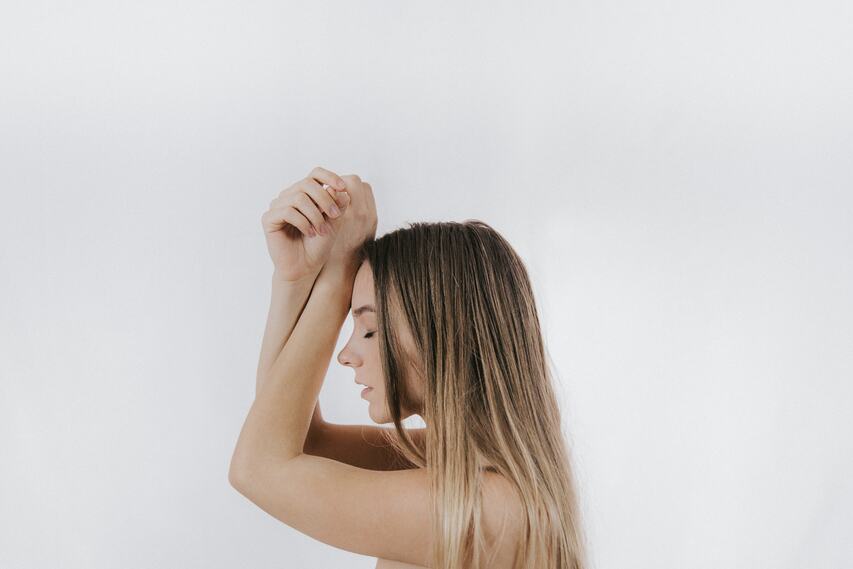Can acne be caused by stress?

Acne is caused by a combination of genetic predisposition, hormonal changes, and—to a lesser (but significant) degree, factors such as stress, diet, and use of the wrong skincare and cosmetics.
Can acne be caused by stress?
When we are stressed, our acne can get worse. Stress can and does suppress our immune system, which can weaken our body’s ability to defend against bacteria and inflammation. In response to stress, our body will release more of the stress hormone cortisol, which may lead to increased oil production in our skin. When we’re stressed out or anxious, we have a greater tendency to become preoccupied with our acne, absentmindedly picking more at our pimples
It is well known that stress slows down wound healing, increases pain intensity, and prolonged surgery recovery rate. Emotional stress is believed to play a significant role in skin disorders such as psoriasis, alopecia areata, and atopic eczema.
A study on 215 medical students showed that 67% believed that stress makes their acne worse. In another study, on 22 students, the researchers found a link between teh frequency and severity of acne breakouts and tests related stress.
Is stress the cause of acne? Or vice versa?
50-80% of the people with acne report a connection between increased emotional stress and worsened acne breakouts. Emotional stress is associated with the production of certain hormones, especially cortisol, that have also been shown to influence acne.
Cortisol, the primary stress hormone, and Dehydroepiandrosterone (DHEAS ) are believed to have an essential role in stress-related acne. Cortisol levels increase in acute anxiety and DHES levels increase in both acute and chronic stress.
Circadian disruption, typically induced by shift work and prolonged air travel, can also cause more acne. It is believed that the changes in the daily rhythm has an impact on the sebaceous gland activity and can lead to more acne flareups.
Stress causes more picking that results in more acne pimples and a higher risk of scarring
Another factor that makes acne worse when people are stressed is a tendency to pick on blackheads, whiteheads, and pimples. Part of the reason for this urge to pick is that when the body is in a high-stress environment, there’s an increase in nerve signaling that causes the skin to itch. This then increases our tendency to touch the skin, spreading acne bacteria, and ultimately causing more pimples. People who experience bouts of or chronic excess stress, as well as acne, can slide into a vicious circle of poor skin hygiene, poor sleep, and eating less healthy food – all lead to increased risk for more acne breakouts.
What is acne excoriée?
This is the extreme case of stress-related acne caused by over picking the skin. Found mostly in females it results in bizarre-shaped scabs spread over the face, shoulders or other skin areas. Regular acne treatment would not help here.
Does acne cause stress?
Acne frequently causes stress anxiety and lower self-esteem. As a result, acne sufferers are at increased risk of depression and suicidal thoughts. The chronic nature of acne can make some people with acne feel hopeless. More than 70% of women with adult acne have confirmed in a recent study that their acne caused them some degree of anxiety or depression. Another study showed that 45.7 percent of acne sufferers experience social phobia avoiding social interactions.
So, how can we reduce stress-related acne?
A combination of effective, medical-grade topical anti-acne treatments (such as MDacne or those from a dermatologist) paired with stress reduction techniques such as meditation, yoga, and other activities that lower cortisol levels, can be a great solution to help combat acne...and also live a bit better overall.
References:
Changes in the Severity of Acne Vulgaris as Affected by Examination Stress. Arch Dermatol. 2003;139(7):897-900.
Stress-related modulation of immunity: a review of human studies. Cancer Detect Prev Suppl. 1987;157- 648.
Occasional acne; an acne variant. Clin Cosmet Investig Dermatol. 2019;12:219-222.
To find the right acne treatments for your unique skin, take the free skin assessment by clicking here.


